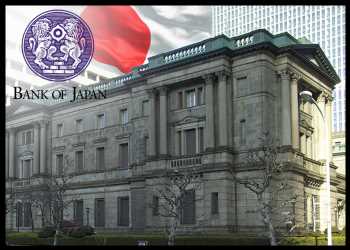The Bank of Japan maintained its ultra loose monetary policy in the first rate-setting meeting chaired by Governor Kazuo Ueda and announced a broad review of the current stance.
The Policy Board unanimously decided to maintain a negative interest rate of -0.1 percent on current accounts that financial institutions maintain at the central bank.
The BoJ also unanimously decided to keep its yield curve control policy unchanged. The bank will continue to purchase a necessary amount of Japanese government bonds without setting an upper limit so that 10-year JGB yields will remain at around zero percent.
The central bank said “The Bank has decided to conduct a broad-perspective review of monetary policy, with a planned time frame of around one to one and a half years.”
The review will explore how the BoJ conducted monetary policy over the past 25 years as the country struggled with deflation.
Ueda took over as the BoJ chief from Haruhiko Kuroda early this month who was a staunch advocate of ultra-loose policy to end stagnation.
In the latest quarterly outlook, the central bank raised its inflation projection for the fiscal 2023 and 2024 citing somewhat higher projection for wages.
The fiscal 2023 inflation forecast was raised to 1.8 percent from 1.6 percent and that for the fiscal 2024 to 2.0 percent from 1.8 percent.
Risks to prices were skewed to the upside for the fiscal 2023 and they were skewed to the downside for the fiscal 2025, the bank said.
At the same time, the bank trimmed the economic growth projection for the fiscal 2023 to 1.4 percent from 1.7 percent citing weak private consumption. Meanwhile, the outlook for the fiscal 2024 was lifted slightly to 1.2 percent from 1.1 percent.
For the fiscal 2025, the central bank forecast the Japanese economy to expand 1.0 percent and consumer prices to climb 1.6 percent.
The BoJ observed ‘extremely high uncertainties’ for Japan’s economy, mainly those including developments in overseas economic activity and prices as well as developments in the situation surrounding Ukraine and in commodity prices.
ING said high inflation and probably a shorter time frame on the review suggests that an adjustment in policy comes earlier and speculation could rebuild over some tweaks in policy ahead of the next BoJ meeting in June.
Source: Read Full Article
